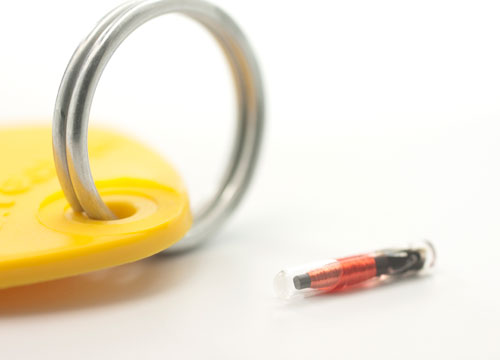We know the issue of pain management is of great concern to pet owners today. As in human medicine, we have a variety of medications available  to manage your pet’s pain before, during, and after surgery, in the event of trauma, and for chronic pain such as arthritis and cancer. We would be pleased to discuss the options available to you and your pet under any of the above circumstances.
to manage your pet’s pain before, during, and after surgery, in the event of trauma, and for chronic pain such as arthritis and cancer. We would be pleased to discuss the options available to you and your pet under any of the above circumstances.
Additional Services

Our experienced team of veterinarians and veterinary technicians provides many services at our clinic, ranging from routine to advanced procedures. Although we handle the majority of your pet’s medical and surgical needs in-house, we occasionally refer patients to veterinary specialists or specialty clinics when advanced training or equipment will be beneficial.
Some cases may be unusual or complicated enough to require referral to a specialist, such as for example a neurologist, cardiologist, or oncologist (cancer specialist).

If you’re concerned about or bothered by an aspect of your pet’s behavior, we can help. Our expert can work with you and your pet to stop or change the behavior. Many aggressive, fearful, or inappropriate behaviors in dogs and cats can be modified through a combination of desensitization and counter-conditioning. These techniques can have dramatic results when applied properly. In some cases, medication can also help. Contact us for an appointment if you’d like to consult with our expert.

Imagine if your dog or cat got lost. You’d want to give him or her the best chance of getting home. With microchipping, you can.
Microchipping is a safe, permanent way to identify your pet in case he or she becomes lost. A microchip, which is a tiny device about the size and shape of a grain of rice, is placed just under the loose skin at the back of the neck. When a lost dog or cat without an ID tag is found, a veterinarian or veterinary technician will use a handheld microchip scanner to check for a chip. If the pet has one, it will transmit its ID number to the scanner via a low-frequency radio wave. The veterinary hospital or shelter then calls the chip manufacturer, retrieves the pet owner’s contact information, and calls the owner.
Even the most responsible pet owners can’t always guarantee their pet won’t get lost. A leash could break or slip out of your hand, a pet could push through a screen door or window, or a contractor or friend might accidentally leave a door or gate open.
We recommend that you use a microchip, along with a collar and ID tag, to identify your pet. An ID tag is still a reliable identification method. Pets that have tags with current contact information are more likely to not end up in shelters and tend to get home faster than those without tags. However, collars and ID tags aren’t permanent and can be removed (overnight or for grooming); pets can also lose them. With a microchip, your pet will have a much better chance of being identified and returned to you. Pets without microchips that end up in shelters may be adopted out to another family or even euthanized.
Please contact us to schedule an appointment to microchip your pet. Although we hope your pet never becomes lost, we want you to be prepared. We can also suggest a plan to have in place so if your pet does go missing, you’ll be able to act quickly.
